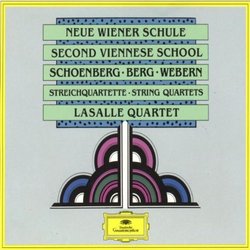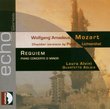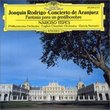| All Artists: Arnold Schoenberg, Anton Webern, Alban Berg, LaSalle Quartet, Margaret Price Title: Neue Wiener Schule: Schoenberg, Berg, Webern Streichquartette Members Wishing: 2 Total Copies: 0 Label: Universal Int'l Release Date: 3/21/2005 Album Type: Import Genre: Classical Styles: Chamber Music, Historical Periods, Modern, 20th, & 21st Century Number of Discs: 4 SwapaCD Credits: 4 UPC: 028941999429 |
Search - Arnold Schoenberg, Anton Webern, Alban Berg :: Neue Wiener Schule: Schoenberg, Berg, Webern Streichquartette
 | Arnold Schoenberg, Anton Webern, Alban Berg Neue Wiener Schule: Schoenberg, Berg, Webern Streichquartette Genre: Classical
|
Larger Image |
CD DetailsSimilar CDs |
CD Reviews"Webern a la Schubert" 01/05/2000 (5 out of 5 stars) "The much underrated LaSalle Quartet gives loving performances in this now famous box-set. This quartet was long known for it's interpretations of the music of the Second Viennese School, and it's good to have these performances remain in the catalogue. Important also is the inclusion of the fascinating (and lengthy) theoretical study in the booklet. If you are a fan of what chamber music and recordings are supposed to be about, add this set to your library." This is one of the best Ray Barnes | Surrey, British Columbia Canada | 06/17/2000 (5 out of 5 stars) "This recording has been in the catalogue for a long time and has won numerous awards in Europe, and deservedly so. Artistically they can stand comparison with any of their competitors, including the old mono set of the Schoenberg quartets done by the Hollywood Quartet as a gift to the composer (for which he added a note of thanks and admiration). The sound quality has always been very fine. The documentation is equal in length and depth of analysis to a short book and is worthy of 6 stars. The original release on LPs, when I first heard it, was packaged in a large box set that would normally have been sufficient to contain the complete Beethoven symphonies; the extra room was needed just for the booklet. This is not easy music but is definitely worth the effort. Highest recommendation." Best chamber music ever from the so-called "atonal" school! Eric Koenig | Kalamazoo, MI United States | 09/30/2004 (5 out of 5 stars) "Arnold Schoenberg complained towards the end of his life that he had been forever saddled with the label of the man who had invented the so-called twelve-tone system of composition. He emphasized he was a composer first and foremost and the methods he employed were irrelevant to the discussion, and he was right. Tonal or atonal or twelve-tone, his music, together with that of his students and colleagues Alban Berg and Anton von Webern, was that of profound beauty and brilliance and wonder. The LaSalle Quartet brings to life almost a dozen works here: the four numbered Quartets by Schoenberg as well as an early work in that form he had written; Berg's early Quartet Op. 3 and the Lyric Suite; Webern's Five Pieces and Six Bagatelles for Quartet and the Quartet Op. 28 plus an early Slow Movement for Quartet, almost a one-movement Quartet in itself. The performances are unsurpassed and absolutely nobody who enjoys music from the 20th Century should be without this in their collection of chamber music. I first heard this while it was available on LP 28 years ago. It was stunning then and it is stunning now."
|

 Track Listings (8) - Disc #1
Track Listings (8) - Disc #1


